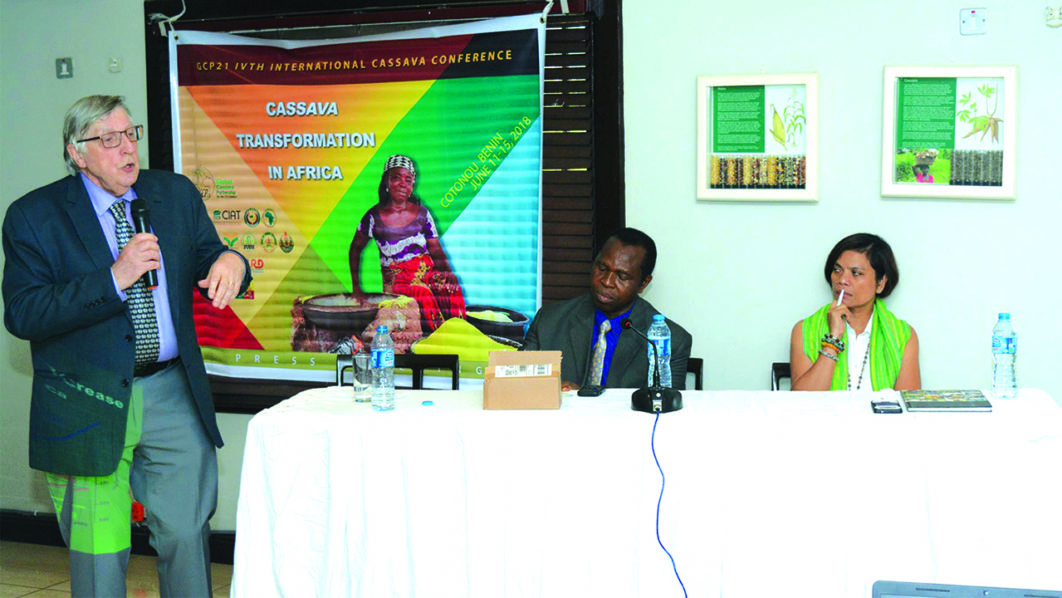
Fauquet, who raised the alarm, at a world press conference in Lagos said though Africa accounts for 55 per cent of global cassava root production, its yield per hectare is the lowest in the world with about 10 tons per ha as opposed to Asia where average yield is 21 tons per hectare—or double the yield in Africa.
He described the low root yields of cassava in Africa as unacceptable and called on member nations to adequately invest in the crop to change the current yield per hectare, adding that a do-nothing approach would hurt the continent, as it would have to contend with more people to feed, and changes in climate that would become more unpredictable.
Fauquet argued that to reverse the current trajectory would demand deliberate steps, including greater investment in research and innovation, provisions of a favorable policy framework, accessibility of loans to farmers at single digit rates, and mechanisation across the value chain.
According to him, Africa needs to scale out proven technologies, including the recommendations on weed control being developed by the Cassava Weed Management Project, improved cassava varieties, and best-bet agronomic practices such as appropriate fertilizer application.
“If we do these, then to double cassava yield will not be a dream but a possibility,” he said.
Fauquet said while technologies are available to transform cassava, not many policy makers were aware of such technologies, adding that the forthcoming Global Conference on Cassava with the theme “Cassava Transformation in Africa” was a unique opportunity that would create an environment for exchange of technical, scientific, agricultural, industrial and economic information about cassava among strategic stakeholders like scientists, farmers, processors, end-users, researchers, the private sector, and donor agencies.
According to him, 300 participants including policymakers, scientists, farmers, processors, end-users, researchers, the private sector, and donor agencies would be participating in the conference.
The Director Designate of GCP21, Professor Malachy Akoroda noted that the conference would provide an opportunity for African countries to tap the best, current, and most innovative technologies that would transform cassava value chains across Africa.
[ad unit=2]






